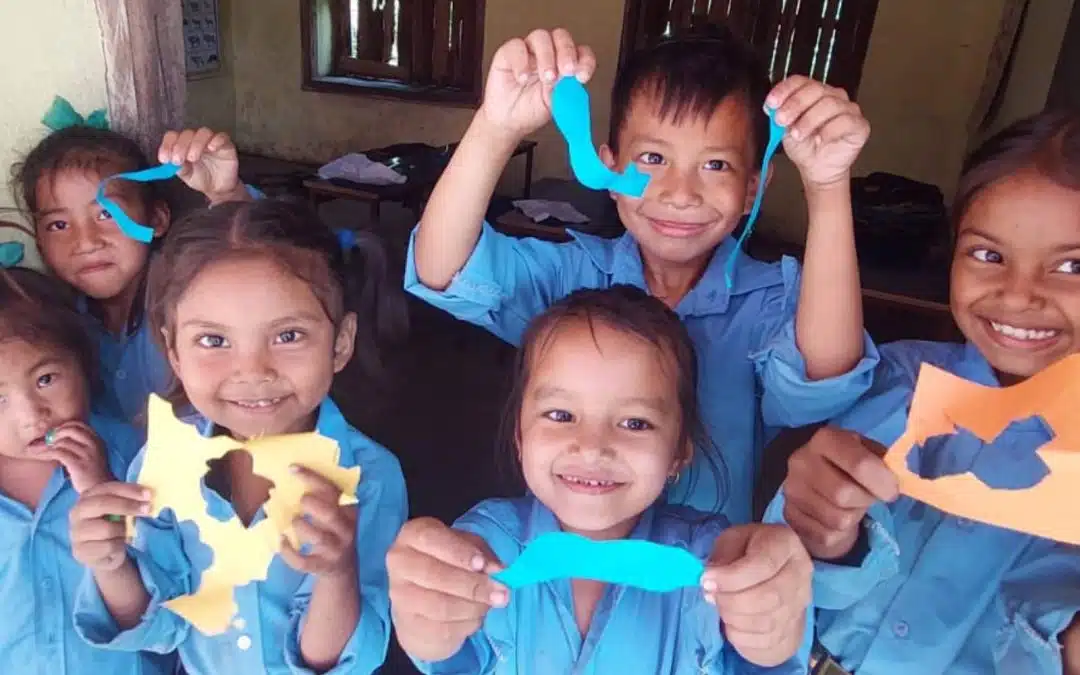
International Play Day, this June 11, 2024, is an excellent opportunity to recall the role of play in the development of young children.
Interview with Nolwenn Deschard, Planète Enfants & Développement's early childhood expert.
What are the benefits of play for young children's learning?
A child under the age of 6 discovers the world through play. It's their first activity! Play enables them to make contact with others, experiment, and develop their imagination and creativity.
While still a baby, play will awaken the child's senses: he or she will be attracted by games with lights, sounds, textures, etc. There are soft sensory balls, for example, with studs, hooks, etc. You can even make your own games. I'm thinking of sensory bottles: a little water, hair gel, glitter, small objects and pebbles, all of which make noise and glitter! Young children will slowly become aware of their bodies through play.
Little by little, as they grow older, they will become interested in imitation and imaginative play. It's only around the age of 2 and a half that children start to play together, and then gradually build stories together.

So what happens if the toddler has no play space?
Play is innate in children. Even if they don't have a play space, they'll find ways to play. However, if the young child receives no stimulation and is never interacting, if he can't move, he will lose neuronal connections. Certain learning processes will be delayed (such as learning to walk or to speak). The child may suffer from intellectual and motor deficits. But this is not irreversible. Young children's brains are still under construction, and delays can be made up with stimulation.
Can you play on a screen before the age of 6?
Before the age of 3, my answer is categorical: no!
As I said, toddlers need interaction and imitation to grow up. The screen makes the child passive, even frozen and hypnotized.
From the age of 3, you can start accompanying your child in screen-based activities. The important thing is not to leave him alone in front of the screen. You can choose an activity (e.g. learning about colors) and talk about it afterwards.
Experts also recommend varying image and video content over short, pre-defined periods to avoid frustration.

Little boys prefer to play with cars and little girls with dolls: true or false?
Innately, this is totally false! Children's gender does not predispose them to prefer this or that game. Children will spontaneously choose games according to their needs, their stage of development or to imitate. A 2-year-old who sees his parents cooking a lot is more likely to go for the dinette corner!
But the society in which they evolve helps to shape children's play. When we observe groups of children, we see boys going for the trucks and girls for the dolls. This is because children are brought up with the general idea, however unconscious, that girls are better at looking after others and boys are more into action. Adult attitudes play an important role. That's why it's vital to identify the stereotypes we unconsciously convey in our language and attitudes, so as to avoid perpetuating them.
Planète Enfants & Développement incorporates the essential role of play in the learning and development of young children into its projects. Whether it's for nursery assistants in Cambodia, childminders in Burkina Faso or Vietnam, or pre-school teachers in Nepal, we integrate modules dedicated to play into our training and coaching programs. We also helped launch and support the development of the social enterprise Biibop, which manufactures handcrafted toys and games in Burkina Faso.










